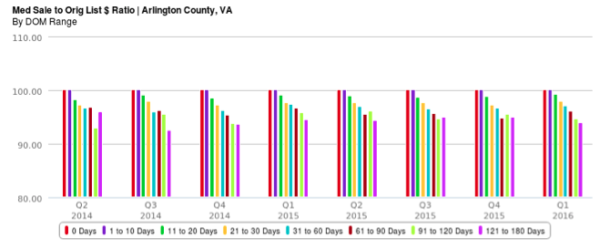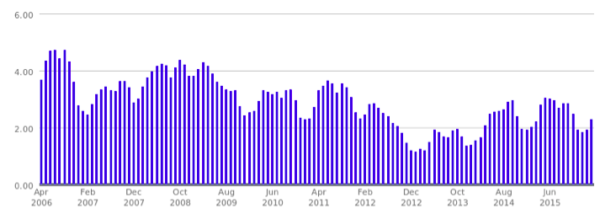
This regularly-scheduled sponsored Q&A column is written by Eli Tucker, Arlington-based Realtor and Rosslyn resident. Please submit your questions to him via email for response in future columns. Enjoy!
Question: Why do so many properties show up as Active on Zillow when they’re actually under contract? Is there another property search app you suggest?
I think the best app, and the app my clients have found most valuable, is Homesnap.
Real Data, Real-Time
In my opinion, the biggest advantage of Homesnap is that it has a partnership with our Multiple Listing Service (MLS), the Metropolitan Regional Information Service (MRIS), which is the system of record agents use to enter and manage properties that are coming soon, for sale, under contract, and sold. Sites like Zillow and Trulia do not benefit from this partnership. The result is that the status of every property in Homesnap is 100% accurate and that changes are made in real-time vs the delay you see on many other property search sites. This is why you often see properties listed as Active in Zillow, only to be told by your agent that they’ve been under contract for days/weeks. Everything you see in Homesnap reflects exactly what the listing agent enters into MRIS.
Agent Interface/Chat Tool
 Another great tool is that you can connect directly with your Realtor through Homesnap (click the link to connect with me!) allowing you to send homes you’re interested in directly to your agent without worrying about whether or not it will go to another agent who has purchased leads in that area. The chat function allows you and your agent to communicate through the app and keeps a record of the properties you’ve shared back and forth. It’s much cleaner than copying and pasting URLs to different emails or sending addresses via text. You can also add multiple people to the chat (like a spouse).
Another great tool is that you can connect directly with your Realtor through Homesnap (click the link to connect with me!) allowing you to send homes you’re interested in directly to your agent without worrying about whether or not it will go to another agent who has purchased leads in that area. The chat function allows you and your agent to communicate through the app and keeps a record of the properties you’ve shared back and forth. It’s much cleaner than copying and pasting URLs to different emails or sending addresses via text. You can also add multiple people to the chat (like a spouse).
Snap Homes
Homesnap was originally built on a slick tool that allows you to take an in-app photo of any home and it immediately pulls up property information on the house, whether or not it’s for sale. It’s a great way to gather information if you see a newly listed property while walking your dog or driving by an unlisted house that you want to know more about.
National Brand, Local Start-Up
Homesnap is also a local start-up! It was established in 2008 and is located in North Bethesda. However, you can rely on Homesnap across the country.
Have you heard of Homesnap before? What other property search tools do readers use that you’d vouch for?
Note: This post has not been sponsored or otherwise reviewed by Homesnap and is 100% the opinion of the author, Eli Tucker (and the tech-wizard President of RLAH, Justin Levitch), through personal use.
If you’d like a question answered in my weekly column, please send an email to [email protected]. To read any of my older posts, visit the blog section of my website at http://www.RealtyDCMetro.com.
Eli Tucker is a licensed Realtor in Virginia, Washington DC, and Maryland with Real Living At Home, 2420 Wilson Blvd #101 Arlington, VA 22201, (202) 518-8781.






